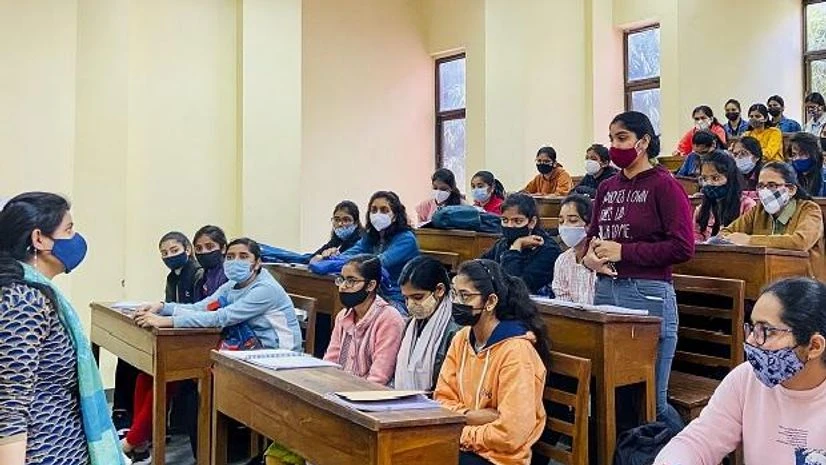The Delhi University is planning to start a certificate course on patent laws to help students to make their research a "tangible" product and give them basic knowledge about filing for patents.
This would be the first time that such a course would be offered at the varsity.
Patent laws are taught as a part of the Intellectual Property Rights (IPR) paper at the Delhi University's Law Faculty, and some science courses in the varsity also include a chapter on the topic.
The varsity has constituted a committee for framing the syllabus and other modalities for a course on patent laws.
A patent is a type of intellectual property that gives its owner the legal right to exclude others from making, using, or selling an invention.
The newly-constituted committee is headed by Daman Saluja, Professor at Medical Biotechnology Laboratory, Delhi University's B R Ambedkar Center for Biomedical Research.
More From This Section
Saluja said the course will help the students understand what should be kept in mind while filing for a patent, as many students are not aware of what is patentable and what is not.
"In higher education, there is a lot of research that has a tangible outcome, however, people aren't aware of it How to make their research a tangible product? People do not know about patent rules and patent laws. DU is planning to start a certificate course in this regard that will fill this gap," she added.
The certificate course will likely be a three-four month programme during which the students will be taught basics about patent laws and what to take care of while filing for the patent, Saluja said.
The course will come in handy for science students who want to learn about patent laws for their research, she said.
Saluja said there is a dearth of knowledge about the patent laws and that is the reason the country lags in getting innovations patented.
Moreover, the professor said, the process for filing for a patent is quite lengthy and complex.
"We are not aware of what terms we should use (while filling for a patent), and what terms we cannot. The filing (for patent) is complicated. It is not just simple filing a form... after one of two days, you have to file a request for its examination. And if you want an early examination, you can make a request. If you file it through a lawyer, then it is not difficult, but lawyers charge a lot," she said, adding the course will help in filling the void created by lack of knowledge.
Saluja said the course will likely be in a hybrid manner (both online and offline) and it might be offered multiple times a year.
The others details and syllabus of the course are being worked out. The committee is set to meet next week, she added.
"I am going to hold a meeting next week and we have a plan to finalise the course in the next two meetings," Saluja said.
In May, Union Education Minister Dharmendra Pradhan also suggested that the Delhi University should start a short-term diploma course on the patent process.
The times are changing. Our country's inventions do not get patented. DU can start a short-term diploma course on the patent process, Pradhan had said during a three-day international seminar at the varsity.
In most universities and law institutes, the patent laws are taught as a part of Intellectual Property Rights (IPR) and not separately.
There are only a few institutes in the country, including Indian Institute of Patent and Trademark and International Intellectual Property Consulting Firm, which provide a separate certificate or diploma courses on patent laws.
DU Professor Alka Chawla, who teaches intellectual property, administrative law and jurisprudence, said patent laws are a very relevant subject and should be taught in all science courses and not just as a certificate course.
"As innovations are coming up. We really need people to know patent laws. It is a welcome step. Market-oriented research is also important. This is a very relevant subject and it should be taught in all the science courses and not just as a certificate course," Chawla said.
"It is not taught as a separate course but chapters as part of IPR in the most university. In law faculty, we have been teaching this for over 40 years," she added.
(Only the headline and picture of this report may have been reworked by the Business Standard staff; the rest of the content is auto-generated from a syndicated feed.)

)
